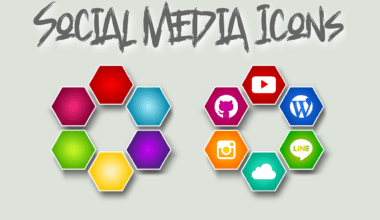Post-Event Engagement Strategies Using Influencer Networks
Post-event engagement is crucial to maintain audience interest and build lasting connections. Influencer partnerships serve as an effective method to extend the reach and maximize the impact of events. Post-event strategies can leverage influencer networks to encourage user-generated content. When influencers share their experiences, they create authentic endorsements that resonate with diverse audiences. These endorsements harness social proof, making future engagement opportunities more appealing. By collaborating with influencers, event organizers can generate buzz around their content. This collaboration increases visibility in various communities interested in the event’s theme. Moreover, leveraging influencer reach through social media campaigns fosters repeat attendance. Incorporating feedback from influencers aids in refining future events based on real attendee experiences. Event organizers should craft personalized approaches that align with the influencer’s audience for better results. Effective engagement post-event can lead to valuable partnerships for upcoming projects. A strategic plan to involve influencers effectively is essential to maximize their impact on outreach efforts. The focus should remain on creating compelling content that encourages sharing and interaction in the community.
Utilizing Social Media Analytics
Monitoring post-event engagement through social media analytics provides invaluable insights. Analyzing data enables marketers to evaluate the effectiveness of their influencer partnerships. Using tools like Google Analytics and social media insights can help assess audience behavior during and after the event. Key metrics include user engagement rates, the reach of influencer content, and overall event hashtag performance. Understanding which influencer partnerships yielded the best results aids in refining strategies for future events. Additionally, it allows organizers to identify which content resonates most with their target audience. This, in turn, helps tailor messaging and engagement strategies to foster deeper connections. Event organizers must keep an eye on the conversations surrounding their events through social listening. Proactively interacting with attendees enhances brand loyalty and community engagement. Responding to comments and feedback encourages attendees to share their experiences further. These actions not only facilitate ongoing dialogue but also contribute to a sense of belonging within the community. Moreover, fostering genuine relationships with influencers encourages continued collaboration for future promotions and events.
Encouraging User-Generated Content
User-generated content plays a key role in enhancing post-event engagement. By encouraging attendees to share their experiences online, brands can leverage authentic voices to promote future events. Influencers can motivate their followers to create and share relevant content by using custom hashtags. When participants see their content featured on official channels, it reinforces a sense of belonging. Influencers can host contests or campaigns that encourage users to showcase their experiences in creative ways. For instance, photo contests or short video challenges enhance visibility while fostering a playful spirit. Implementing incentives, such as giveaways or exclusive access to future events, can motivate participation. Recognizing and celebrating user contributions can enhance community loyalty. Event organizers should promote user-generated content across various platforms, including Instagram, TikTok, and Twitter. Practicing transparency in featuring content builds trust among the audience. Consistent interaction with user-generated posts encourages a vibrant online community. Additionally, showcasing user testimonials can provide genuine endorsements for future events. Creating a curated content feed of attendee experiences builds excitement and anticipation around upcoming events.
Building Relationships with Influencers
Building lasting relationships with influencers is paramount for long-term success. It’s essential to engage organically with influencers who align with the event’s target audience. Establishing genuine connections fosters collaboration beyond individual events. Brands can enhance their reputation by nurturing relationships based on mutual interests. Facilitating influencer involvement within future event planning stages can create more compelling experiences. By including influencers as co-creators or ambassadors, brands can optimize engagement efforts. Understanding the influencers’ strengths, values, and audience helps tailor these partnerships effectively. Additionally, offering value to influencers fosters loyalty and organic promotion. This might include exclusive access to events, behind-the-scenes content, or opportunities to engage with key figures. Transparent communication is critical; brands should solicit influencers’ feedback to improve future events. Following up with influencers post-event maintains rapport and sets the stage for ongoing collaborations. Celebrating successes together reinforces the partnership and fuels enthusiasm for future projects. A supportive network of influencers becomes a valuable asset, driving community interest and ongoing engagement for all events. Investing time in relationship-building can amplify a brand’s presence and create lasting impact.
Leveraging Email Marketing with Influencer Inputs
Email marketing is vital for post-event follow-up and engagement. Incorporating influencer inputs in email campaigns can enhance their effectiveness. Event organizers should segment their audience based on preferences gathered during registration or interactions. Personalized content tailored to different audience segments increases open rates. Influencers can contribute quotes, insights, or advice related to the event, further enriching the content of emails. Their unique perspective motivates attendees to remain engaged long after the event concludes. Including user-generated content in email campaigns can amp up excitement. Featuring the best moments captured by attendees invites recipients to partake in the conversation. Highlighting influencer endorsements can foster credibility and establish ongoing relationships. To achieve better engagement, organizers must ensure email designs are visually appealing and mobile-friendly. Additionally, implementing call-to-action buttons encourages recipients to share their experiences on social media. Continuous follow-up is crucial, as it keeps the event fresh in attendees’ minds. Providing value through useful content or exclusive regret offers strengthens their connection to the brand. Regular updates about forthcoming events cultivate anticipation among influential communities.
Creating Interactive Experiences
Creating interactive experiences is an effective way to enhance post-event engagement. Collaborating with influencers can transform passive follow-ups into engaging activities. For instance, hosting live discussions or Q&A sessions with influencers post-event can keep conversations thriving. These can be held across different social media platforms, encouraging audience participation. Additionally, organizing webinars featuring influencer insights can educate and connect attendees on deeper levels. Interactive content, like polls or quizzes, can foster involvement and gauge attendee preferences. Event organizers should incorporate elements that personalize experiences for various audience segments. These activities promote continuous engagement and create shareable moments. Incentives, like exclusive content or sneak peeks into future events, can further boost participation. Cultivating a vibrant online community encourages attendees to become repeat participants. Striving for an ongoing narrative beyond the event enhances brand perception and audience loyalty. Meanwhile, influencer collaborations can symbolize trust and authenticity in these interactive engagements. Thus, blending influencer presence with engaging content deepens connections and motivates audiences to remain invested. Ultimately, the goal is to enrich brand experiences that resonate with participants even after the event.”},{
Tracking and Measuring Success
Tracking post-event engagement and measuring success metrics is crucial for evaluating influencer partnership effectiveness. Establishing key performance indicators (KPIs) can help organizers assess overall performance concerning their goals. Indicators might include total reach, engagement rates, click-through rates, and audience growth. Social media tools and analytics platforms offer insights into the effectiveness of influencer strategies to assess branding outcomes. Engaging influencers to track audience sentiment can influence future direction. Following up with surveys or feedback forms allows organizers to gather valuable insights on attendee experiences. Analyzing these responses assists in understanding trends and behaviors within the audience. Moreover, identifying which strategies yield the most engagement helps refine partnerships. Success should be gauged not only quantitatively but qualitatively through customer satisfaction feedback and loyalty indicators. Creating reports summarizing the data can provide comprehensive insights for future phases. Sharing these results with influencers not only strengthens relationships but also encourages them to promote brand events authentically. Finally, continuous improvement based on performance ensures ongoing relevance within the dynamic market and maximizes the impact of influencer partnerships.
This is an additional paragraph to increase the word count to match required standards.





